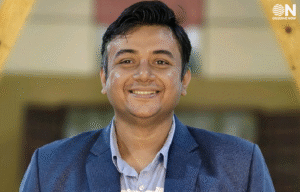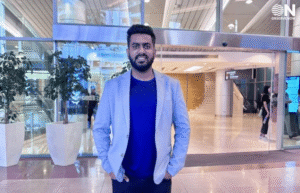The world is plunging headfirst into a future filled with ambiguities, challenges, and opportunities of a kind we’ve never seen before. It brings to mind the widely noted 1960s’ Modern Design movement, which saw the words “design” and “planning” used interchangeably. This convergence of terms shows the perception of design as a forward-thinking discipline, closely aligned with shaping the future.
To navigate this innovative landscape, designers must adopt a new mindset – one that prioritizes longevity over fleeting trends. It’s what we might call “Design Education 2.0.”
“Designing Ideas”
Swiss-American designer and educator Yves Behar maintains that “design must be an agent of change.” Never has this been truer than in today’s working landscape, where the designer’s role has evolved from creator to facilitator, and from innovator to sustainability warrior. In Design Education 2.0, the classroom must stretch beyond the walls of academia and even beyond the screen of the computer, reaching into the essence of how societies work, what consumers value, and, ultimately, what our planet needs.
A designer’s canvas is no longer confined to the four corners of a page or the constraints of a prototype. Today’s designer has to shape products, services, ecosystems, and, to be honest, our collective future.
Biomimicry to Solve Human Problems
For millions of years, nature has refined its processes, offering valuable lessons for designers. Biomimicry, the practice of incorporating nature’s methods, is a cornerstone of Design Education 2.0. Janine Benyus, the first to identify this discipline, calls biomimicry the “the conscious emulation of life’s genius”. Benyus encourages us to draw inspiration from nature’s time-tested solutions. By studying nature, designers can create sustainable, resilient solutions.
However, sustainability is only half the equation. Effective biomimicry requires a deep understanding of human needs and values. Tim Brown, of IDEO fame, is a proponent of design thinking as a powerful problem-solving tool, where empathy, ideation, and experimentation become second nature. In the world of work, a designer is no longer just addressing human needs; they’re juggling human values.
To solve a problem without understanding the people it impacts is like trying to cook without tasting the food. Design Education 2.0 is to help students learn the art of tasting—of experiencing, testing, and empathizing with people they’re designing for. But as designers master this human-centered approach, they’ll soon find themselves collaborating with another critical stakeholder: technology.
The Art of Collaborating with Machines
In this brave new world, designers won’t just concert with other humans; they’ll work alongside algorithms, artificial intelligence, and data in ways that would’ve sounded like science fiction even a decade ago. Students need to understand that AI is no longer an abstract tool but an integral co-worker. To prepare them for this, schools must offer courses that familiarize students with data-driven design, the principles of user experience as informed by machine learning, and even the ethical boundaries that come with using AI.
Technically, students need to grasp programming languages, data analysis tools, and machine learning frameworks. Ethically, designers must consider the implications of AI, avoiding bias, ensuring transparency, and protecting data privacy.
AI excels at optimizing and automating routine tasks, freeing designers to focus on high-level thinking. However, its scope of outcomes is inherently limited. Human creativity, with its capacity for intuition and innovation, remains essential for designing solutions that resonate with people.
The Importance of Soft Skills in a Hard World
Amidst all this talk of tech, it’s easy to forget the most essential tool in a designer’s kit: communication. Designers need to create and also articulate, inspire, and negotiate. They will need to build bridges across departments, making a solid case for ideas that may seem radical to the untrained eye. Good design is about simplifying the complicated. And for that, today’s students need training in storytelling, in ethics, and in a good, solid handshake.
A designer’s career today is unlikely to follow a linear path. From UX to industrial design to sustainability, a young designer’s job description will likely change a dozen times over the span of their career. Design schools need to encourage a kind of intellectual curiosity that will outlast the trends. Education can’t only be about portfolios anymore; it has to be about giving students the mindset of a lifelong learner. Our classrooms should prepare students to go out into the world, not as experts but as explorers, hungry to learn from the unknown.
The Responsibility of Design
Design Education 2.0 is about creating individuals who are ready to take on the mantle of responsibility for the world around them. The designs of tomorrow will demand an empathetic heart, a visionary mind, and a steady hand. If the designers of the future are going to make an impact, they’ll need an education that inspires them to dream big, act responsibly, and create wisely.
Author: Nien Siao, Dean, JS Institute of Design.
Disclaimer: The views expressed in this article are solely those of the author and do not necessarily reflect the opinions or policies of ObserveNow Media. The author is solely responsible for ensuring the accuracy, completeness, and validity of the information presented, encouraging readers to independently verify and seek professional advice if needed.
































